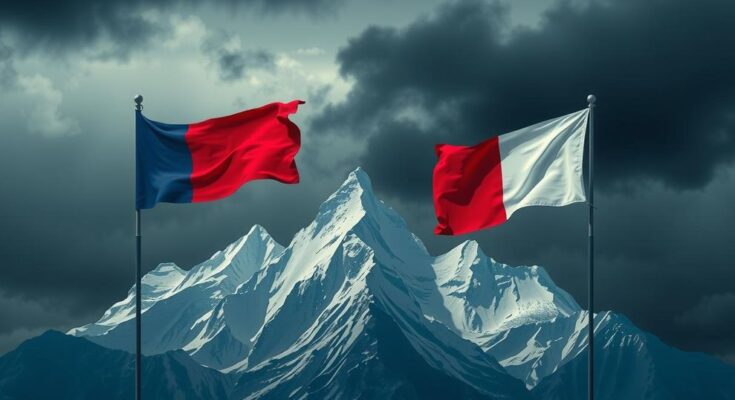The Foreign Minister of the DRC, Therese Kayikwamba Wagner, accused Rwanda of illegal territory occupation amid a conflict involving the M23 rebel group. Rwanda denies these claims, emphasizing its role in conflict containment. The seizure of Goma by M23 has resulted in significant humanitarian challenges, with many displaced and crucial services disrupted. International leaders are urging ceasefires and resolutions to prevent further escalation.
The Foreign Minister of the Democratic Republic of the Congo (DRC), Therese Kayikwamba Wagner, has leveled accusations against Rwanda, claiming it is illegally occupying part of Congolese territory following the M23 rebel group’s capture of Goma. She expressed concerns regarding a possible orchestration of regime change in the DRC, criticizing the international community for failing to hold Rwandan President Paul Kagame accountable for alleged international law violations.
M23’s advances have predominantly occurred in the South Kivu province, bordering Rwanda and Burundi. Despite these allegations, Rwanda has persistently denied any connection to the M23 rebel group, asserting that its troops are present solely to contain the conflict and prevent its escalation. Rwandan government spokesperson, Yolande Makolo, emphasized their lack of interest in warfare or regime change, asserting their commitment to peace.
The seizure of Goma, North Kivu’s largest city, has intensified fears among its approximately two million residents, who now face risks of violence and hunger due to disrupted access to water and electricity. As of the previous week, around 178,000 Congolese citizens had already been displaced amid M23’s territorial gains, further complicating the humanitarian situation.
Congolese officials contend that M23 is exploiting the region’s mineral wealth, a sentiment echoed by various United Nations reports. U.N. Secretary-General Antonio Guterres has warned that the M23 advances could escalate into a regional conflict, urging an immediate cessation of hostilities and withdrawal from occupied territories.
The United States has expressed grave concerns, aligning with the U.N.’s call for a ceasefire. Secretary of State Marco Rubio described the scenario as “deeply troubling,” noting his communication with President Kagame. Furthermore, the Southern African Development Community convened an emergency meeting to deliberate on the escalating security crisis in eastern DRC.
In the wake of increased violence, South Africa has suffered the loss of 13 soldiers dedicated to peacekeeping efforts in the region. South African President Cyril Ramaphosa attributed the disturbances to M23 and Rwandan militia operations against Congolese Armed Forces and SADC peacekeepers, calling for urgent attention to ensure stability.
The ongoing conflict in the eastern Democratic Republic of the Congo, particularly concerning the M23 rebel group, has dire implications for regional security. Countries such as Rwanda, which borders DRC, have been implicated in the conflict, leading to accusations of illegal territorial occupation. The situation has led to significant humanitarian crises, with numerous displaced individuals and escalating tensions across the region. The U.N. and international leaders are increasingly concerned about a potential broader conflict, prompting calls for ceasefires and diplomatic resolutions.
In summary, the accusations of Rwanda’s illegal occupation by DRC’s foreign minister reflect the heightened tensions surrounding the ongoing M23 conflict. International response, including calls for ceasefire and peacekeeping efforts, underscores the urgency of addressing the humanitarian crisis affecting thousands. The regional dynamics involve complex relations between various nations, with rising concerns about potential escalations into broader conflicts. Immediate diplomatic solutions are imperative to restore peace and stability in the region.
Original Source: www.upi.com




